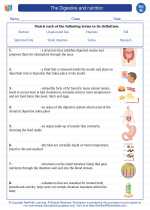Organic Remains
Organic remains are the preserved remnants of once-living organisms that are found in the Earth's crust. These remains can include plant and animal fossils, as well as other organic materials such as wood, shells, and exoskeletons.
Types of Organic Remains
There are several types of organic remains, including:
- Fossils: These are the preserved remains or traces of organisms from the distant past. Fossils can be formed through a variety of processes, such as petrification, mold and cast formation, and carbonization.
- Wood: Petrified wood is a type of organic remain that has been fossilized and turned into stone over time.
- Shells: Fossilized shells of mollusks and other marine organisms can provide valuable information about past environments and ecosystems.
- Exoskeletons: The preserved exoskeletons of ancient arthropods, such as trilobites, are important organic remains that help scientists understand the history of life on Earth.
Importance of Organic Remains
Studying organic remains is crucial for understanding the history of life on Earth and the processes that have shaped the planet over millions of years. By analyzing organic remains, scientists can learn about ancient ecosystems, climate change, and evolutionary patterns. This information is important for fields such as paleontology, evolutionary biology, and environmental science.
Study Guide
Here are some key points to remember when studying organic remains:
- Understand the different types of organic remains and the processes involved in their preservation.
- Learn about the significance of organic remains in understanding Earth's history and the evolution of life.
- Be familiar with the methods used to study organic remains, such as fossil dating techniques and paleoecological analyses.
- Explore case studies of significant organic remains discoveries and their impact on scientific understanding.
- Consider the ethical and conservation issues related to the excavation and preservation of organic remains.
By mastering these concepts, you'll gain a deeper understanding of the importance of organic remains in the study of Earth's history and the evolution of life.
.◂Science Worksheets and Study Guides Eighth Grade. The Digestive System & Nutrition

 Worksheet/Answer key
Worksheet/Answer key
 Worksheet/Answer key
Worksheet/Answer key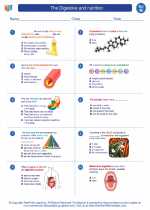
 Worksheet/Answer key
Worksheet/Answer key
 Vocabulary/Answer key
Vocabulary/Answer key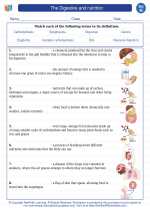
 Vocabulary/Answer key
Vocabulary/Answer key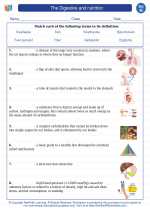
 Vocabulary/Answer key
Vocabulary/Answer key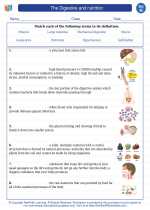
 Vocabulary/Answer key
Vocabulary/Answer key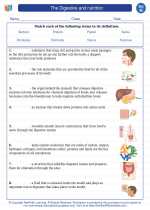
 Vocabulary/Answer key
Vocabulary/Answer key